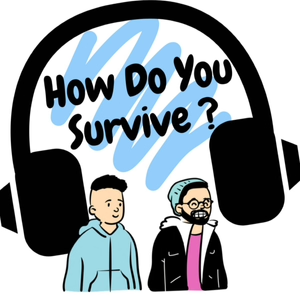
RFK Jr. Confirmed as HHS Secretary: What It Means for Healthcare Policy
02/18/25 • 8 min
Edye Edens and Darshan Kulkarni dive into the confirmation of RFK Jr. as Secretary of Health and Human Services and the immediate impact of President Trump’s latest executive order. The order mandates a comprehensive national health assessment, addressing issues like obesity, diabetes, and pediatric disorders, and aims to reshape the country’s approach to preventive care. While the focus on public health challenges is timely, the broad and vague nature of the directive raises questions about its execution and potential consequences.
A key concern is how the administration will interpret health data—whether it will rely on scientific evidence or lean into controversial theories, particularly regarding vaccines and chronic illnesses. RFK Jr.’s alignment with the "food as medicine" movement could bring renewed attention to nutrition and prevention, but there is also the risk of oversimplifying complex health issues. Will this shift in policy lead to meaningful improvements in healthcare access and disease prevention, or will it fuel misguided initiatives based on correlation rather than causation?
Darshan and Edye explore the broader implications, including the potential for changes in clinical trial funding, regulatory oversight, and access to medications. They emphasize the need for a balanced approach that values scientific rigor while addressing public health challenges. With major policy shifts on the horizon, this is a developing issue that will demand close scrutiny in the weeks to come. Stay tuned as they continue to break down the impact of these decisions on healthcare, research, and patient outcomes.
Edye Edens and Darshan Kulkarni dive into the confirmation of RFK Jr. as Secretary of Health and Human Services and the immediate impact of President Trump’s latest executive order. The order mandates a comprehensive national health assessment, addressing issues like obesity, diabetes, and pediatric disorders, and aims to reshape the country’s approach to preventive care. While the focus on public health challenges is timely, the broad and vague nature of the directive raises questions about its execution and potential consequences.
A key concern is how the administration will interpret health data—whether it will rely on scientific evidence or lean into controversial theories, particularly regarding vaccines and chronic illnesses. RFK Jr.’s alignment with the "food as medicine" movement could bring renewed attention to nutrition and prevention, but there is also the risk of oversimplifying complex health issues. Will this shift in policy lead to meaningful improvements in healthcare access and disease prevention, or will it fuel misguided initiatives based on correlation rather than causation?
Darshan and Edye explore the broader implications, including the potential for changes in clinical trial funding, regulatory oversight, and access to medications. They emphasize the need for a balanced approach that values scientific rigor while addressing public health challenges. With major policy shifts on the horizon, this is a developing issue that will demand close scrutiny in the weeks to come. Stay tuned as they continue to break down the impact of these decisions on healthcare, research, and patient outcomes.
Previous Episode

America’s Research Future in Jeopardy
Darshan Kulkarni and Edye Edens break down the significant impact of the Trump administration’s decision to cut NIH funding and reduce agency workforces, including the FDA, OHRP, and other key regulatory bodies. They discuss how these cuts could lead to serious disruptions in research funding, approval timelines, and the overall pace of medical innovation in the U.S. While some argue that such reductions could improve efficiency and reduce waste, others fear the immediate and long-term consequences—particularly for investigator-initiated trials, rare disease research, and the ability of institutions to remain globally competitive.
The conversation highlights the potential ripple effects, including workforce layoffs, the shuttering of critical trials, and delays in drug approvals. With the FDA considered the gold standard in regulatory oversight, a drastic reduction in its capacity could have global repercussions, potentially undermining trust in the U.S. approval process. Moreover, the lack of transition planning and abrupt implementation raises concerns about whether the administration has fully considered the real-world impact of these cuts.
Edye and Darshan also examine the broader economic and geopolitical implications, questioning whether these cuts align with the administration’s “America First” philosophy. They discuss how China and other countries are rapidly advancing in drug innovation, in part due to U.S.-led research. If domestic funding dries up, there is a risk that pharmaceutical and biotech breakthroughs could shift overseas, weakening America’s leadership in life sciences.
Ultimately, they stress the need for informed decision-making, transparency, and better representation of key stakeholders in these high-stakes policy shifts. Without a strategic approach, the short-term cost-cutting measures could create long-term challenges, not only for researchers and institutions but also for patients who depend on groundbreaking medical advancements.
Next Episode

Does E6 (R3) Blur the Line Between GCP and Privacy Laws?
In this video, Edye Edens discusses the recent transition of ICH GCP E6 from R2 to R3, highlighting an interesting question she received: Is R3 evolving into a privacy doctrine? Given its increased focus on data protection, system validation, and privacy responsibilities, some wonder if it overlaps with regulatory frameworks like HIPAA, especially as OCR proposes significant updates to the Security Rule. However, Edens notes that while R3 contains more references to privacy, it does not explicitly mention cybersecurity, which is a major focus of OCR’s changes. She argues that R3 is not attempting to replace or overshadow existing privacy regulations but rather aligns with their broader goals of data confidentiality and integrity. She invites discussion on whether others see any regulatory overlap.
If you like this episode you’ll love
Episode Comments
Generate a badge
Get a badge for your website that links back to this episode
<a href="https://goodpods.com/podcasts/darshantalks-podcast-403650/rfk-jr-confirmed-as-hhs-secretary-what-it-means-for-healthcare-policy-84424266"> <img src="https://storage.googleapis.com/goodpods-images-bucket/badges/generic-badge-1.svg" alt="listen to rfk jr. confirmed as hhs secretary: what it means for healthcare policy on goodpods" style="width: 225px" /> </a>
Copy




